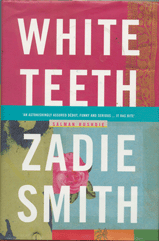

This week on the MashReads Podcast, we talk about Ken Liu's "Paper Menagerie." Join us in the episode above as we talk about the magical realism of Liu's story, the way the novel portrays immigration, and the heartbreaking twists of the story. (You can read the story online here (opens in a new tab).) "There's no excuse for you not to read it," says Martha. In just a few pages, Liu explores immigration, identity, and culture, with so much heart, joy, and brevity, that "Paper Menagerie" will leave you both devastated and wanting more. Part of the reason the story is so effective is because it's so sparse. "It's so heart-wrenching, and I, being a kid from immigrants, felt it on such a deep level." "I cried reading it on the subway," says Martha Tesema. But in addition to describing an allegory of how we relate to our heritage, the story is also a heartbreaking look at the ways children relate or distance themselves from their parents as they grow up. The story is a powerful allegory about the experience that so many children of immigrants have. "Every story in the book has this enormous heart, this enormous underpinning of sweet sadness to it," says Mashable's Peter Allen Clark of the book and the story.


But when his mom dies, Jack discovers that she has been writing letters in the paper of his menagerie, and she has her own story that she has been struggling to tell. As Jack grows up, he distances himself from his mom until their relationship is uncomfortable and strained. When he is a kid, Jack's mom creates an origami menagerie for him, and when Jack's mom breathes into the origami, the menagerie comes to life, jumping and playing with him.Īfter a fight with schoolmate who teases Jack about his Chinese heritage, Jack discards the menagerie, and rejects his mom, who grows increasingly silent.

"Paper Menagerie" is a short story about a bi-racial boy named Jack, who has a white dad and a Chinese mom, who immigrated to America. Or at least that's the case with "The Paper Menagerie," the titular story of Ken Liu's The Paper Menagerie and Other Stories. You don't always need hundreds of pages to tell a moving story.


 0 kommentar(er)
0 kommentar(er)
